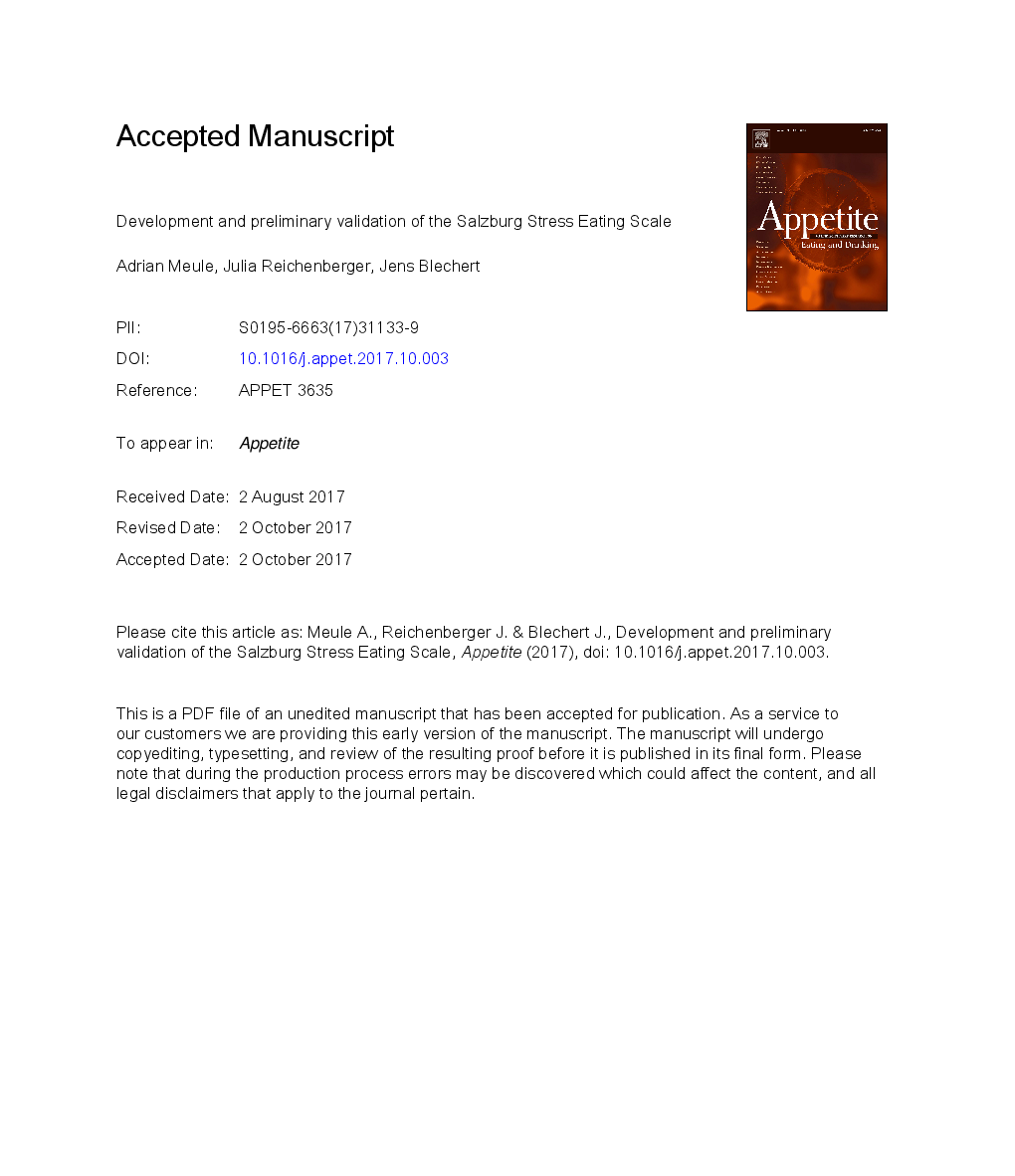ترجمه فارسی عنوان مقاله
توسعه و اعتبار اولیه مقیاس خوردن استرس سالزبورگ
عنوان انگلیسی
Development and preliminary validation of the Salzburg Stress Eating Scale
| کد مقاله | سال انتشار | تعداد صفحات مقاله انگلیسی |
|---|---|---|
| 157567 | 2018 | 27 صفحه PDF |
منبع

Publisher : Elsevier - Science Direct (الزویر - ساینس دایرکت)
Journal : Appetite, Volume 120, 1 January 2018, Pages 442-448
ترجمه کلمات کلیدی
فشار، خوردن استرس، خوردن احساسی، شاخص توده بدن،
کلمات کلیدی انگلیسی
Stress; Stress eating; Emotional eating; Body mass index;

